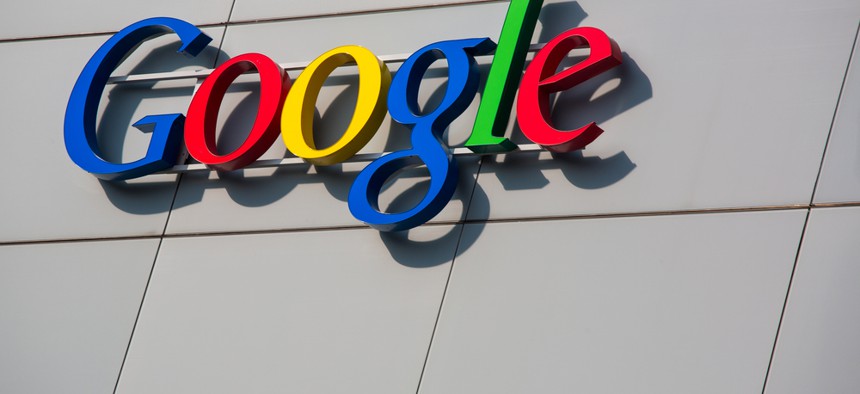Google to Obama: Leave Us Out of Your Spying Fight

l i g h t p o e t/Shutterstock.com
Our data mining isn't like NSA surveillance at all, Silicon Valley says.
Google is getting nervous.
On the one hand, the Internet behemoth wants the public to know it’s outraged by U.S. surveillance programs and is aggressively lobbying for new rules to keep its customers’ data safe from the government’s prying eyes.
But as public attention turns to data privacy, Google, Facebook, Yahoo, and other tech giants want to be sure that their own data-gathering practices don’t get lumped in with the federal spying programs that are the target of popular ire.
At the top of their worry list: The White House is holding the two up side-by-side. In President Obama’s speech in January outlining National Security Agency reforms, he also ordered a John Podesta-led review of “big data,” the collection and storage of massive amounts of personal information—including by private companies.
The implicit message from the White House is that while the public has raised legitimate privacy concerns about NSA spying, similar data-mining practices by private companies shouldn’t escape scrutiny.
So when White House officials invited outside input from the public on the “big data” review, the tech world’s loudest voices were more than happy to offer an earful. The companies’ oft-repeated message to the administration: Don’t conflate your spying practices with our data-privacy plans.
“We urge the administration to be cognizant that government surveillance and commercial privacy are separate and distinct issues,” the Internet Association, a lobbying group that represents Google, Facebook, Yahoo, and others, wrote in a comment. “Given that Internet companies aim to provide transparency, choice, and control to consumers, efforts to conflate these issues are counterproductive, particularly given how little transparency citizens currently have when it comes to government surveillance.”
BSA—a software lobbying group that includes Apple, Microsoft, and IBM—urged the White House to make all efforts to “avoid conflating government and commercial interests in data.”
One technology-industry lobbyist said there is widespread frustration with the White House for conducting the big-data and NSA reviews in parallel.
“Companies have very specific relationships with their users, and they tell them what they’re doing with their data,” the tech lobbyist said, adding that it is an “apples and oranges” comparison to NSA surveillance.
The White House did not respond to a request for comment.
Tech companies are lobbying against NSA spying because they worry it could undermine trust in their services. But they depend on the ability to harvest data about users to target advertising and to provide other services.
The White House has acknowledged—and the tech companies have emphasized—that massive databases can power innovative new services that benefit consumers. The industry points to services that more effectively scan emails for spam, help drivers avoid traffic, and predict the weather. Data are also helping scientists study diseases and develop more-effective treatments.
Gautam Hans, an attorney for the Center for Democracy and Technology, a consumer-advocacy group, agreed that the concerns about government and private uses of data are different. But he argued that Congress should enact more limitations on how private companies can collect and handle private information.
“In the big-data context, much of it is sensitive information like health data or location data, so private companies all need to recognize that privacy and security are important, and these are not minimal concerns,” he said.
Although the tech companies are nervous about having the spotlight on them, the chances for new online-privacy regulations still appear slim. The White House announced a “Consumer Privacy Bill of Rights” in 2012, but the issue has gone nowhere on Capitol Hill.
This article appears in the April 9, 2014 edition of NJ Daily.
(Image via l i g h t p o e t / Shutterstock.com )






